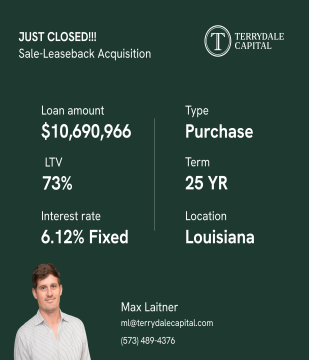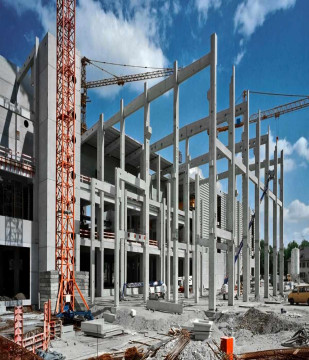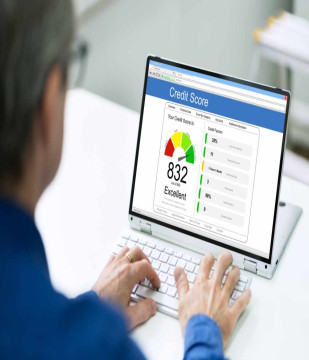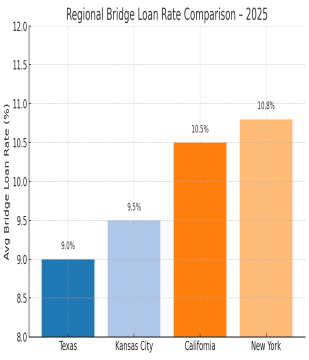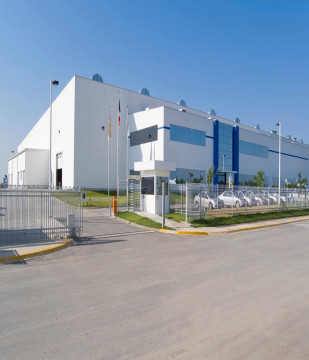Understanding What Discount Rates Are

Terrydale Capital
Mar 15, 2024 6 Min read
 Learn
Learn
In the dynamic world of commercial real estate (CRE) investment, understanding the concept of discount rates is akin to having a compass in unfamiliar terrain. Discount rates play a pivotal role in evaluating the financial viability of potential investments, guiding investors towards informed decisions. In this guide, we'll delve into what discount rates are, how they're calculated, and what significance they hold for commercial real estate investors.
What are Discount Rates?
At its core, a discount rate represents the rate of return required by an investor to justify the risk of investing capital into a particular project or asset. In the context of commercial real estate, discount rates serve as a critical tool for estimating the present value of future cash flows generated by a property.
Calculating Discount Rates in Commercial Real Estate
Calculating discount rates involves a blend of financial analysis, market research, and risk assessment. While there are various methodologies, the most commonly used approach in commercial real estate is the Discounted Cash Flow (DCF) analysis. Here's a simplified breakdown of the DCF process:
- Estimating Future Cash Flows: Begin by forecasting the future cash flows that the property is expected to generate over a specified holding period. These cash flows typically include rental income, operating expenses, capital expenditures, and potential resale proceeds.
- Determining the Appropriate Discount Rate: The discount rate encompasses several factors, including the property's risk profile, prevailing market conditions, financing terms, and the investor's required rate of return. It often incorporates a risk-free rate (such as the yield on government bonds) plus a risk premium to compensate for the property-specific risks.
- Discounting Future Cash Flows: Apply the chosen discount rate to each projected cash flow to calculate its present value. This process accounts for the time value of money, reflecting that a dollar received in the future is worth less than a dollar received today.
- Calculating Net Present Value (NPV): Sum up the present values of all projected cash flows to determine the property's net present value. A positive NPV indicates that the property is potentially profitable, while a negative NPV suggests that it may not meet the investor's return requirements.
Implications for Commercial Real Estate Investors
Understanding discount rates empowers commercial real estate investors in several ways:
- Risk Assessment: Discount rates inherently encapsulate the perceived risk associated with a property or investment opportunity. Higher-risk projects command higher discount rates to compensate investors for the additional uncertainty.
- Comparative Analysis: Investors can use discount rates to compare multiple investment opportunities on a standardized basis. By applying consistent discount rates across different properties, investors can assess which assets offer the most attractive risk-adjusted returns.
- Decision Making: Discounted cash flow analysis provides investors with a quantitative framework for evaluating investment decisions. By comparing the NPV of a potential investment to its acquisition cost, investors can make informed choices about whether to pursue or pass on a particular opportunity.
- Sensitivity Analysis: Sensitivity analysis allows investors to assess how changes in key variables, such as rental rates, occupancy levels, or discount rates, impact the investment's viability. This helps investors understand the potential range of outcomes and mitigate downside risks.
In Conclusion
Discount rates serve as a cornerstone of financial analysis in commercial real estate, guiding investors through the complex terrain of property valuation and investment decision-making. By mastering the principles of discounting cash flows and understanding their implications, investors can navigate the CRE landscape with confidence and clarity, striving to unlock value and achieve their financial objectives.
Terrydale Capital utilizes our comprehensive experience and our wide reaching industry connections to bring the most competitive rates to our clients. When you need the right team beside you for your commercial real estate investment, contact us today!
Partner With Terrydale Capital for Your Debt Financing Needs
When it comes to debt financing, understanding the right timing, process, and options is crucial. At Terrydale Capital, we provide a comprehensive range of commercial loan solutions tailored to meet your business's unique needs.














